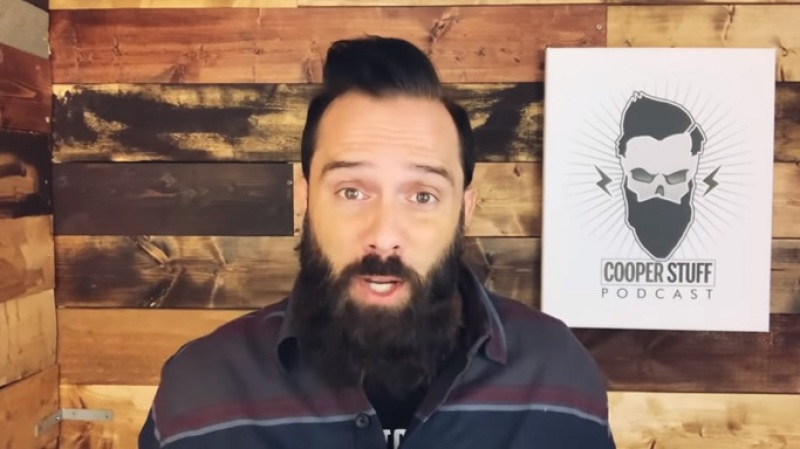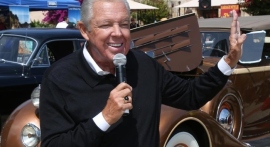
During this week's edition of the Cooper Stuff podcast, Skillet frontman John Cooper shared his Christian perspective on the Kyle Rittenhouse verdict and how it pertains to "cosmic justice."
After Rittenhouse was cleared of murder charges due to self-defense, people, including Christians, were split on the racial discourse, particularly on the purpose of furthering social justice.
On Monday, Cooper, who noted that "my little town of Kenosha is in the spotlight again" over Rittenhouse's trial, emphasized the importance of this matter for Christians to debate, noting that Christians on both the left and right sides of politics are interested in seeing justice served.
"What I care about is the philosophy," he clarified. "What's underneath this, Christians? We have two jobs. Number one, Christians are supposed to care about biblical law. We are supposed to care about what God says is right and wrong. Do we agree on that? That's number one. But we also have to care about civil law in America. To me, I think we should care about to what degree does biblical law inform civil law?"
After highlighting how many American Christians had degraded into leftism as a result of their disregard for Old Testament principles, Cooper continued by defining "traditional justice versus cosmic justice."
He used the definitions from Thomas Sowell's book, "The Quest for Cosmic Justice."
"When he says traditional justice, what he means is basically the idea that everyone should be treated exactly the same according to the law," explained Cooper.
He also went on to note that this kind of justice is more akin to a 'lose-lose' scenario than a 'win-win.'
Following that is "cosmic justice," which Cooper defines as "a world where no one suffers" because there will be "a cosmic leveling of all rights and wrongs."
"There will come a time when Christ comes back to earth and He will judge the earth, right? He is the perfect judge," he said." And in order to have cosmic justice, you have to be on a mission. You have to know all of the facts of history, as they truly have been, and not just know all the facts."
However, Cooper believes that such cosmic justice is not present in the current social justice era. That is because it is no longer about what an individual has done, but rather what that person has done as a representative of a group of people.
"It's about collective justice," said Cooper. "Whites versus Blacks. Rich versus poor. America versus less, you know, third world countries, less wealthy countries, and it's about all of these factions."
He did highlight, however, that Cosmic Justice, as a Christian understands it, is a belief in something bigger than the rule of the state, a kind of transcendent truth knowing.
He then asked those who say they adhere to biblical law whether they also believe in the concept of "self-defense."
"Do you believe in self defense?" he asked. "That's the question. Do you believe that it is a right? I believe that that is an American right.... What do you think Christians actually think? I have a sneaking suspicion because not a single one of you has defended what he actually did on the videotape."
"If you believe in biblical law, that biblical law does provide a right for me to defend myself," he added.
Cooper recognizes that this concept might readily be distorted by wicked individuals, as when the Nazis published lies about Jews in order to incite hatred and justify harming them in the name of self-defense. He argues, however, that what Christians have in mind is more about the social justice cause than it is about doing crimes or sins on purpose. Christians, on the other hand, Cooper argues, might readily succumb to the humanistic concept of justice.
"There has been injustice in America," he acknowledged. "There's been historic racism is in America. It still has an effect today."
To Cooper, it means lawmakers must continue to pass legislation to address the issue. According to him, Americans must provide the best possible justice or as many privileges as they can, even if it means providing more justices. He said that's okay since there is a higher concept of justice and love that transcends all of this.
As for Christians, he issued the following challenge.
"Why don't we open the bible?" he asked.
"Why don't we look at biblical law and find out what God says is righteous and then we will do our best to have equity under the law with an understanding that even at the end of the day, even if we have done the very best job we can do to meet out some sort of just verdict, we still understand that things will not be fully right, things will not be perfectly just," he said.
"There is still going to be hardship and you can not fix injustices of past with injustices today"


























